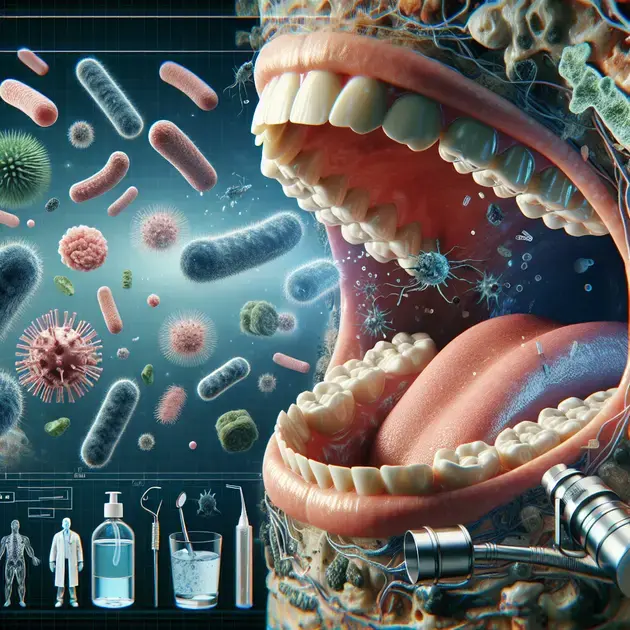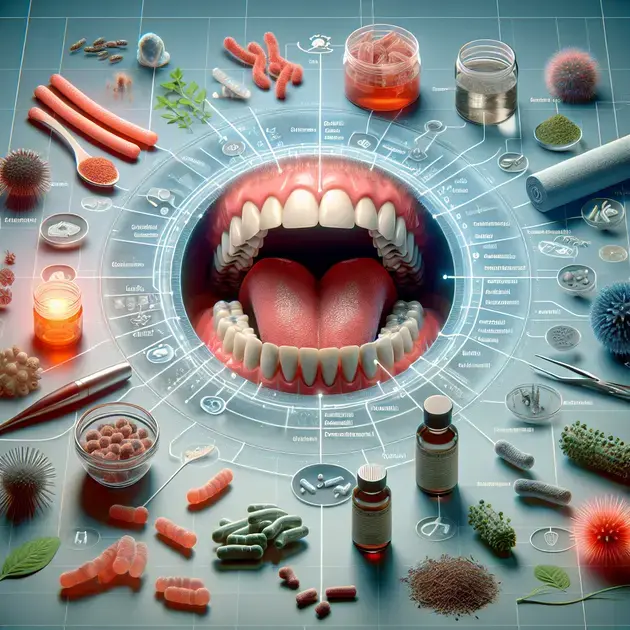Halitosis, commonly known as bad breath, can be a frustrating and embarrassing issue for many individuals. Understanding the root cause of halitosis is essential in effectively addressing and treating this condition.
Recent studies have shown that in many cases, halitosis is caused by the presence of certain types of bacteria in the mouth, particularly on the surface of the tongue. These bacteria can produce foul-smelling gases that result in bad breath. By understanding the role of these bacteria, individuals can take proactive steps to improve their oral hygiene and reduce the occurrence of halitosis.

Underlying Factors Contributing to Halitosis
Halitosis, more commonly known as bad breath, can be caused by various underlying factors. One major factor is poor oral hygiene. Not brushing and flossing regularly can lead to the accumulation of food particles and bacteria in the mouth, which produce odors. Another factor is dry mouth, which can be caused by medications, certain medical conditions, or simply not drinking enough water.
To address poor oral hygiene as a factor contributing to halitosis, it is essential to establish a proper oral care routine. Brushing teeth at least twice a day and flossing daily can help remove plaque and food debris that contribute to bad breath. Using a tongue scraper to clean the tongue can also be beneficial in reducing bacteria that cause odors.
Additionally, staying hydrated by drinking an adequate amount of water throughout the day can help combat dry mouth. Chewing sugar-free gum or sucking on sugar-free candies can also stimulate saliva production, which aids in washing away bacteria in the mouth.
An app that can help individuals track their oral hygiene habits and set reminders for brushing and flossing is “Dental Care Diary.” This app provides personalized oral care plans and tips to maintain fresh breath.
By addressing these underlying factors and incorporating good oral hygiene practices into daily routines, individuals can effectively reduce the risk of halitosis and enjoy fresher breath.
Exploring the Relationship Between Oral Bacteria and Bad Breath
The presence of specific bacteria in the mouth plays a significant role in causing bad breath. These bacteria break down food particles, releasing sulfur compounds that contribute to foul odors. Understanding the relationship between oral bacteria and bad breath can help in developing targeted strategies to combat halitosis.
One important step in managing oral bacteria to prevent bad breath is maintaining a balanced oral microbiome. This can be achieved through regular dental check-ups and cleanings to remove plaque and tartar buildup. Using antimicrobial mouthwashes can also help in reducing harmful bacteria that cause bad breath.
Another effective strategy is to incorporate probiotics into daily oral care routines. Probiotics are beneficial bacteria that can help balance the oral microbiome and reduce the population of odor-causing bacteria. Consuming probiotic-rich foods or supplements can promote a healthier oral environment.
An app that provides detailed information on oral bacteria and their effects on bad breath is “Dental Health Guide.” This app offers insights into different types of oral bacteria, their impact on oral health, and tips for maintaining a bacterial balance in the mouth.
By exploring the relationship between oral bacteria and bad breath and implementing targeted strategies to promote a healthy oral microbiome, individuals can effectively manage halitosis and improve overall oral health.
Effective Strategies for Preventing and Treating Halitosis
Preventing and treating halitosis involves a combination of lifestyle changes and oral care practices. One effective strategy is to maintain a well-balanced diet rich in fruits and vegetables while reducing the consumption of sugary and acidic foods. Eating crunchy fruits and vegetables can help clean teeth and stimulate saliva production, which aids in fighting bad breath.
In addition to diet, practicing good oral hygiene is paramount in preventing and treating halitosis. This includes brushing and flossing regularly, cleaning the tongue, and using mouthwash to kill bacteria. Regular visits to the dentist for professional cleanings and check-ups are also essential in keeping bad breath at bay.
For individuals with chronic halitosis, seeking guidance from a healthcare professional, such as a dentist or physician, is crucial. They can help identify any underlying health issues contributing to bad breath and recommend appropriate treatment options.
An app that offers personalized tips and reminders for preventing and treating halitosis is “Fresh Breath Companion.” This app provides tailored oral care routines, diet recommendations, and reminders for dental appointments to help individuals maintain fresh breath.
By implementing these effective strategies, individuals can take proactive steps towards preventing and treating halitosis, leading to improved oral health and confidence in their breath.

Root Causes of Halitosis Revealed
Halitosis, commonly known as bad breath, can have various root causes that contribute to this unpleasant condition. Poor oral hygiene is one of the primary factors, as bacteria in the mouth can produce odorous compounds when food particles are left stuck between teeth and gums. Additionally, certain medical conditions such as gum disease, dry mouth, and respiratory infections can also lead to halitosis.
Lifestyle choices like smoking and consuming alcohol can exacerbate bad breath, as they can dry out the mouth and leave an unpleasant smell. Furthermore, dietary habits rich in acidic or sugary foods can promote bacterial growth and contribute to halitosis. Identifying and addressing these root causes is crucial in effectively managing bad breath.
The Link Between Diet and Bad Breath
The foods we consume play a significant role in the development of bad breath. Diets high in sulfur-containing foods, such as garlic and onions, can contribute to foul-smelling breath as the compounds in these foods are absorbed into the bloodstream and expelled through the lungs. Similarly, consuming sugary and acidic beverages can create an environment in the mouth that is conducive to bacterial growth.
Moreover, dehydration can lead to dry mouth, which can further exacerbate bad breath. Staying hydrated by drinking plenty of water is essential for maintaining oral health and preventing halitosis. Making mindful dietary choices and staying hydrated can help mitigate the link between diet and bad breath.
Holistic Approaches to Managing Halitosis
When it comes to managing halitosis, holistic approaches can offer comprehensive solutions that address the root causes of bad breath. Incorporating natural remedies such as oil pulling with coconut oil or using essential oils like peppermint and tea tree oil can help combat bacteria in the mouth and freshen breath.
In addition, maintaining a balanced diet rich in fruits and vegetables can promote overall oral health and reduce the likelihood of halitosis. Regular dental check-ups and cleanings are also crucial in preventing and managing bad breath. By taking a holistic approach that considers lifestyle, diet, and natural remedies, individuals can effectively manage halitosis and enjoy fresher breath.
Conclusion
Halitosis, commonly referred to as bad breath, stems from various root causes, including poor oral hygiene and certain medical conditions like gum disease and dry mouth. Lifestyle choices such as smoking and consuming acidic foods can exacerbate this issue, making it essential to identify and address these root causes to effectively manage bad breath.
The link between diet and bad breath is significant, with sulfur-containing foods like garlic contributing to foul-smelling breath. High consumption of sugary and acidic beverages can also create an environment conducive to bacterial growth in the mouth. Dehydration further worsens bad breath, highlighting the importance of staying hydrated to prevent halitosis and making mindful dietary choices to mitigate the impact of diet on oral health.
Embracing holistic approaches to managing halitosis can provide comprehensive solutions that target the root causes of bad breath. Incorporating natural remedies such as oil pulling with coconut oil and using essential oils like peppermint can combat mouth bacteria and freshen breath. A balanced diet rich in fruits and vegetables, along with regular dental check-ups, are crucial in preventing and managing bad breath. By adopting a holistic approach that considers lifestyle, diet, and natural remedies, individuals can effectively combat halitosis and savor fresher breath, ultimately improving their overall oral health.
